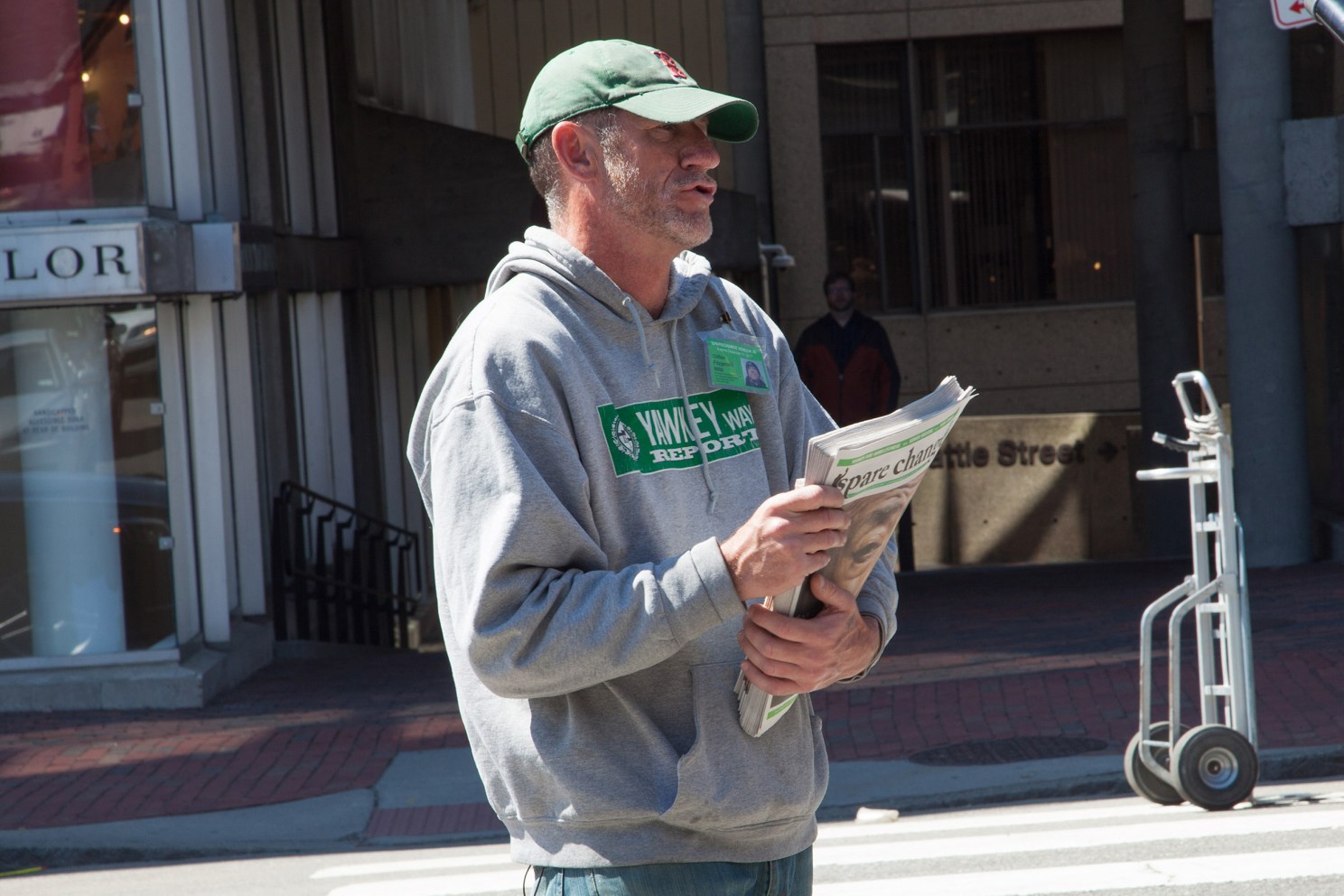Law School clinic helps the homeless earn a living

A Spare Change News vendor sells issues on the corner of Church and Brattle Streets. Photo by Chris Jennings
“What counts as ‘income’ for taxes?” “Will paying taxes affect the public assistance I receive?” “Will I lose my veterans disability benefits if I make too much money?” “Why should I use a bank?”
Those are some of the questions street vendors of Greater Boston’s Spare Change News grapple with. A recently published guide, “Two Cents for Spare Change News: A Legal Resource for Spare Change News Vendors,” developed by Harvard Law students, aims to provide answers.
Spare Change News, the oldest street publication in the country, provides its vendors, many of whom are either currently or formerly homeless, with the resources needed to run a business. Vendors operate as sole proprietors, buying as many papers as they want for 50 cents per copy and then keeping what they earn. While Spare Change’s mission is to show by example that, “with the proper resources, empowerment, opportunities and encouragement, homeless and low-income people are capable of creating change in society for themselves,” for vendors, selling newspapers can be an inherently unstable business for a number of reasons.
In the spring of 2017, Antoine Southern and Anne Rosenblum, then 3Ls in Harvard Law School’s Community Enterprise Project (CEP) of the Transactional Law Clinics, spearheaded a new partnership between the clinic and Spare Change to help vendors better understand their legal obligations as business owners. CEP combines direct client representation with community-based projects in which students work alongside community organizations on persistent legal problems over the course of a semester.
“Meeting with vendors, we were able to gain a sense of what they really needed, and began to develop a guide that would help with legal issues such as their taxes and personal banking and benefits,” said Southern.
[gz_article_embed type=”embed” layout=”article-width” ratio=”16-9″]https://www.youtube.com/watch?v=ukkS4FrzFAQ[/gz_article_embed]
The core part of the Spare Change project involved collecting and sharing information regarding legal issues inherent in running a small business. The guide includes information on what it means to be the sole proprietor of a small business, tax obligations and how to meet them, how public benefits might be impacted by small business ownership and tips on banking services. The guide also includes resources for nonbusiness-related concerns, such as housing discrimination and mental health.
“The experiences that I’ve had have been invaluable and have given me an opportunity to develop skills and put them to use in ways that are just not available through academic classes,” said Rosenblum. “They’ve also just made my life richer and more enjoyable, a welcome break from the classroom and departure from the Harvard bubble.”
—Shona Simkin





